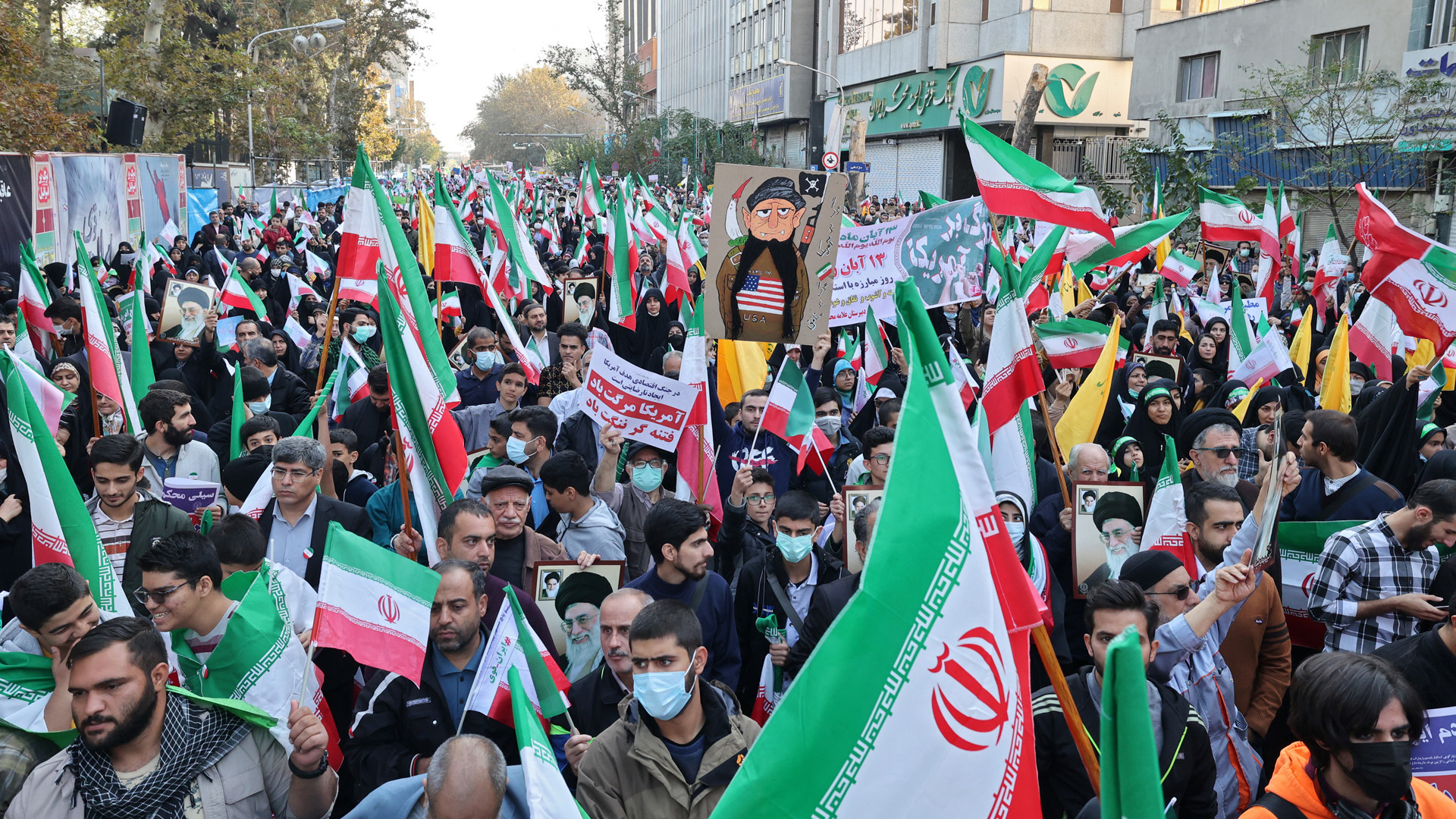Der Spiegel magazine reported - without revealing its sources - that Germany and 8 other European Union member states intend to expand the sanctions imposed on Iran to include individuals and organizations linked to what it describes as violence against demonstrators there.
The magazine stated that a package of 31 proposals was presented in Brussels last Wednesday targeting individuals and institutions affiliated with the security sector, as well as companies responsible for what it describes as the repression in Iran.
The magazine said that the measures include an asset freeze and a travel ban, adding that the chance of EU foreign ministers agreeing to the package at their next meeting on November 14 is great.
While the German government did not make any comment so far.
Relations between Iran and the West have become increasingly strained as anti-government protests continue.
In parallel, Germany's Social Democratic Party leader Lars Klingbeil called for "very clear" sanctions against Iran.
"Sanctions must be tightened again on the Iranian regime and against everyone who bears responsibility there. It starts with things like the issue of visas, where visas are prohibited, to the freezing of funds and the imposition of real political sanctions," Klingbail said on Saturday at a party conference in Berlin. It is scheduled to decide on a similar request from the executive leadership of the party tomorrow, Sunday.
Iran is witnessing protests that erupted after the death of Mahsa Amini, 22, 3 days after her arrest by the morality police, who accused her of violating the strict dress code for women in the country.
Protests in Iran
In the same context, Iranian students continued their protest, while shop owners went on strike today, Saturday, at a time when the demonstrations following the death of Amini entered their eighth week.
The security forces adopted new measures to stop the protests in the universities of the capital, Tehran, on Saturday, by searching students and forcing them to remove face masks, according to activists.
For its part, the Norway-based human rights organization Henkau said that people spoke of a "widespread strike" in the town of Saqqaz (Amini's hometown in Kurdistan province), where shops were closed.
The Oslo-based Human Rights Organization in Iran said that at least 186 people were killed by security forces during the current protests.
The organization added that 118 other people have died in separate protests since last September 30 in Sistan-Baluchestan, a predominantly Sunni province in the southeast of the country, on the borders with Afghanistan and Pakistan.
Biden's statements
On the other hand, Iranian President Ibrahim Raisi condemned the statements of US President Joe Biden, during which he pledged to "liberate" Iran.
US President Joe Biden (Reuters)
"Don't worry, we will liberate Iran. (The Iranians) will liberate themselves very soon," Biden said last Thursday - while campaigning for the midterm elections.
Raisi responded by saying that Iran was indeed liberated after the overthrow of the Western-backed Shah in 1979.
And he said in his speech - to the thousands who gathered in front of the former headquarters of the US embassy (in central Tehran) to commemorate the storming of the embassy in 1979 by students loyal to Imam Khomeini, and the taking of 52 hostages - "Our young men and women are determined and we will never allow you to carry out your diabolical desires."
On Friday, US National Security Council spokesman John Kirby played down Biden's comments, telling reporters, "The president has been expressing our solidarity with the protesters as he has been - quite frankly - since the beginning."
In response to a question about whether the Biden administration believed that the Iranian regime could fall soon, he said, "I don't think we have indications of this kind."
On Friday, the world's largest cryptocurrency platform Binance acknowledged that funds belonging to or destined for Iranians flowed through its service, and may conflict with US sanctions.
“Earlier this week, we found out that Binance interacted” with “bad actors” using Iranian cryptocurrency exchanges, said Binance Sanctions Officer Shagri Poraz.
Some of these users "sought to transfer cryptocurrency via Binance," he wrote on the company's blog.
"As soon as we found out, we moved to freezing transfers (and) banning accounts," he added.
There are no Iranian cryptocurrency platforms currently subject to sanctions, but the restrictions imposed by the United States prevent a US entity or citizen from selling goods and services to residents of Iran or to Iranian companies and institutions, and the ban includes financial services.

